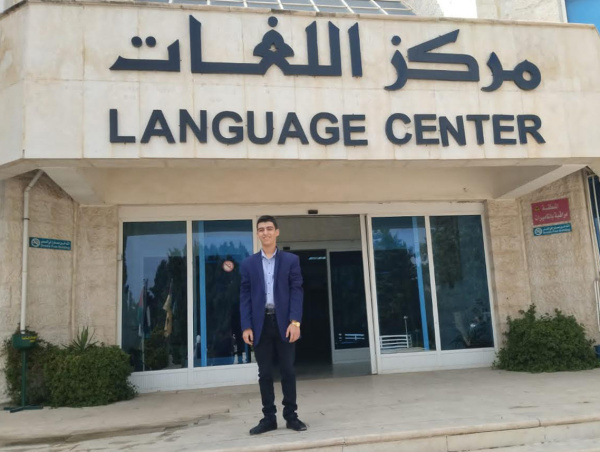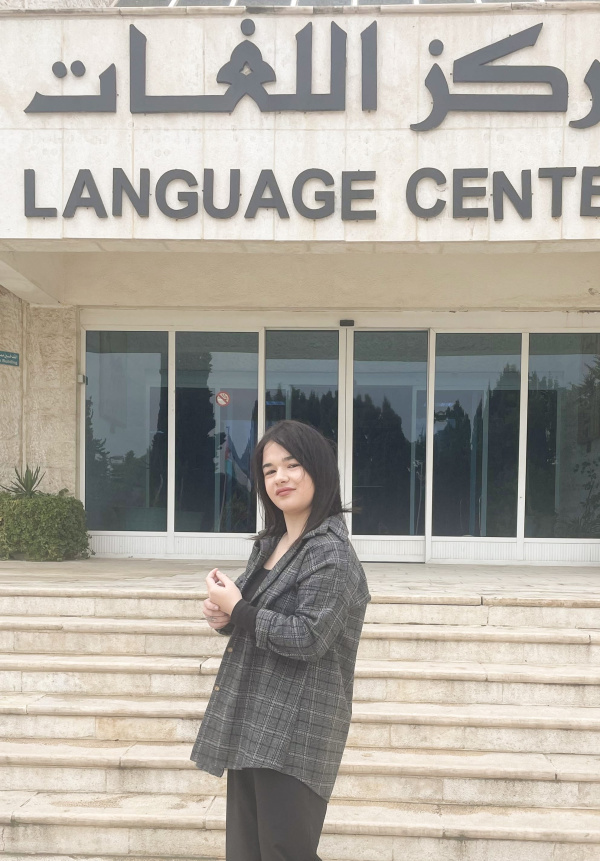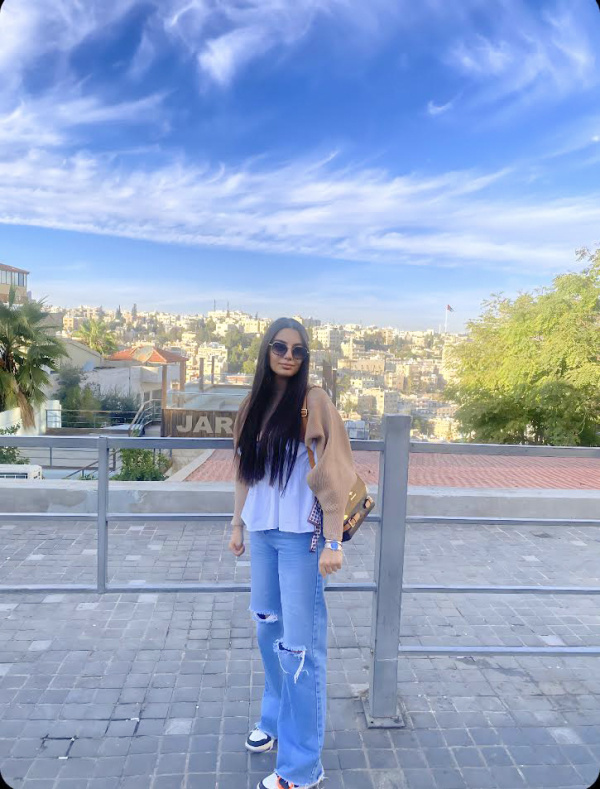During their studies at the YSU Faculty of Oriental Studies, students have the opportunity to study in Arab countries through exchange programs. Ararat Khachatryan, Anna Tarminyan and Maro Manukyan, 3rd-year students of the Department of Arabic Studies, are spending the 2023-2024 academic year at the Language Center of the University of Jordan, deepening their knowledge of the Arabic language.
Ararat Khachatryan talked about the opportunity, importance and advantages of studying in Jordan.

I was aware of the opportunities to study in Arab countries for a long time, but I could not overcome the feeling of uncertainty of living alone and far from everyone. Following the advice of my older friends who studied in Jordan, finally I made a decision to apply for the program.
In general, the application procedure is not complicated. If the student wants to apply, she/he informs the chair and then submits the necessary documents. Depending on the number of applicants, a competition is held to select outgoing students, after which a business trip for 1 academic year is formulated, and the most interesting phase begins - living and studying abroad.
The program is of great importance to me, as it provides a unique opportunity to have fellow students from different countries (e.g. I currently have classmates from Germany, India, Korea, Switzerland, Hungary, Austria and France) and communicate with them, developing my foreign language communication skills and enrich my knowledge.
Studying in Jordan opens many doors to my further education and career. This is how I pursue my professional goal of entering the fields of diplomacy and tourism. In both cases, I face inter-ethnic contact, polite behavior and the elaboration of national history, and that's what raises my interest.
After graduating from Yerevan State University and the University of Jordan, I will have opportunity to work in Armenian and foreign governmental, international and diplomatic organizations, tourist and other foreign language agencies, The Ministry of Foreign Affairs, embassies and consulates of Arab and other countries, universities, foreign language centers, etc., which I think is wonderful.

Anna Tarminyan talked about the details of studying at the language center of the University of Jordan.
In the University of Jordan, the course is very interesting, students never get tired, because there is no uniformity. The lecturers are very friendly and benign. They regularly organize various educational games aimed at enhancing our knowledge of the Arabic language. Within the framework of separate courses, we develop Arabic reading, speaking and listening skills, etc. The education provided by the Department of Arabic Studies of Yerevan State University certainly enabled me to communicate here quite easily. I haven't encountered any difficulties yet.
The program is also a great platform to present the history and culture of our country to our fellow students gathered in one place from different countries. For example, during one of the classes, we discussed the topic of wedding traditions in Jordan, within the framework of which I presented details about wedding traditions in Armenia with a slide show.
The University of Jordan also organizes various cultural events that aim to strengthen interethnic relations and intercultural connections.
Maro Manukyan presented the process of adapting to the Jordanian environment, the differences between Armenians and Arabs, and Arabic culture.

I've been in Jordan for a few months now, but you can say I'm still getting used to it, because it's one thing to read about a given country and another thing to live in that environment. I experienced a culture shock from the first moment I came here. I have attended weddings, parties and found absolutely no similarities with Armenian culture. For example, Jordanian Arabs generally do not use knives, forks, or spoons. They eat with their hands. Instead of a tablecloth, they spread a single-use plastic bag on the table, which is very convenient when eating with your hands. During weddings, the bride's face is completely covered (so that others do not see her with makeup), and only water and cake are placed on the tables, which is also quite different from Armenian. All this was initially shocking and hindered the process of adapting to the environment. However, Jordanian Arabs are very hospitable and friendly.
In Arabic culture, most of all, I am interested in music and architecture. I have not visited Jordan's top attraction, Petra yet, but I hope to in the future. I am surely going to visit the Wadi Rum desert, the Dead Sea, the Red Sea, the city of Jerash, etc.
Jordanian cuisine is also unique. Among the foods I have tasted maqluba (although it is Palestinian, they eat a lot here too), Iraqi dolma, etc., but I must admit that I cannot adapt to the flavors. Spices in dishes are too much for me.
Studying abroad is a wonderful experience, but you have to arm yourself with patience, because it won't be easy. As the Hindu spiritual leader Osho would say, when the goal is achieved, the path is forgotten.
Lilit Mkrtchyan


